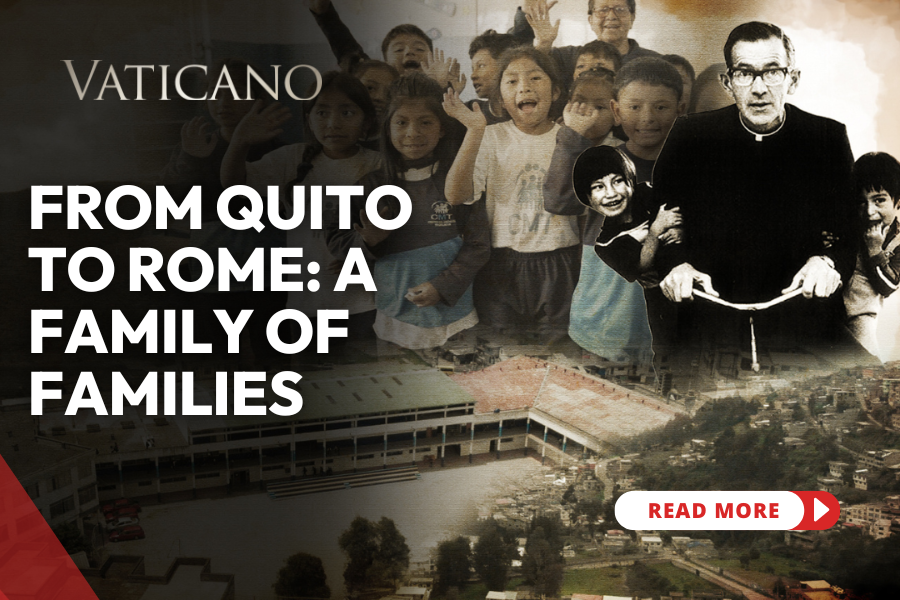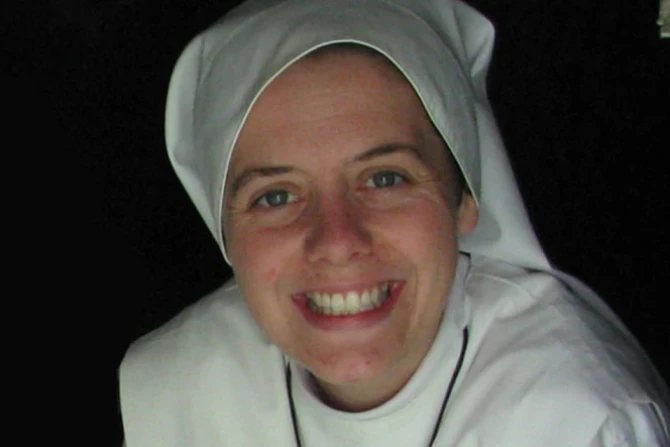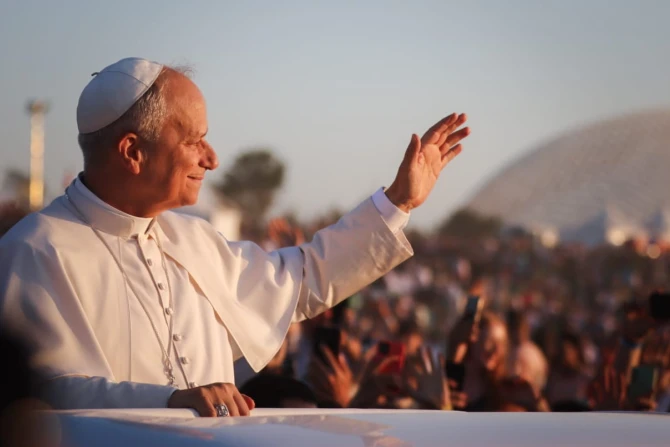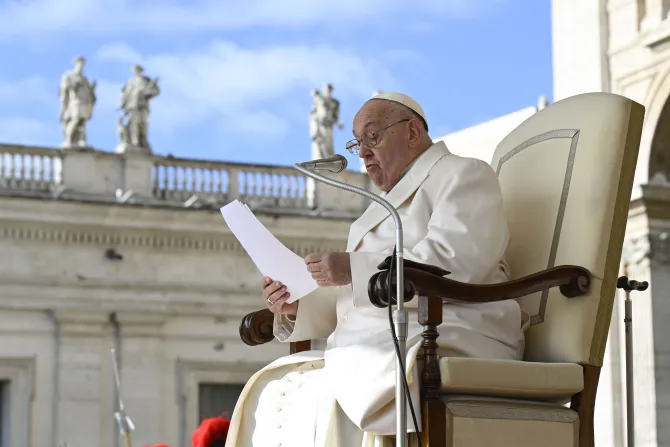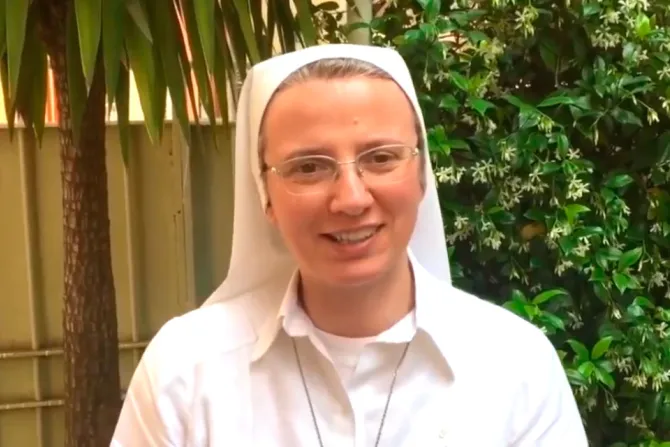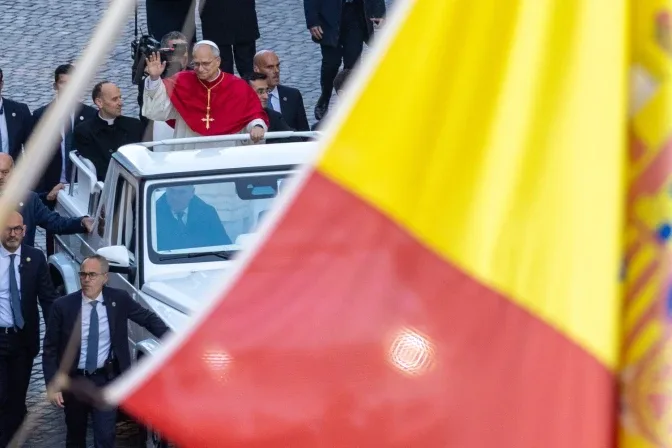This week on Vaticano, we travel to Quito, Ecuador, where the upcoming International Eucharistic Congress shines a light on the city’s struggles and triumphs. The International Eucharistic Congress will take place from September 8-15.
A Family of Families
In Quito, a Jesuit Center known as the “A Family of Families” Center works tirelessly to break the cycle of poverty for the community it serves. Through this mission, we see how the center not only provides for immediate needs but also empowers individuals to transform their lives.
Ecuador is a small, diverse country, yet it faces significant challenges. Wealth disparity has created an atmosphere of dissatisfaction, leading to protests and a rise in insecurity. With limited access to basic rights, many Ecuadorians struggle to make ends meet. This is where the Center “A Family of Families” steps in, aiming to change lives by offering tools and resources that foster empowerment.
Goal of the Center
Johnny Espinosa, a dedicated worker at the center, explains that the goal is to provide families with the means to believe in themselves and develop life projects. The center’s work reflects the Catholic Church’s principles of solidarity and subsidiarity, funding projects that would otherwise go unnoticed. These projects make a tangible difference in the lives of the poor, showing the impact of well-managed capital within the Church.
Power of prayer
Edwin Herman, another worker at the center, emphasizes the power of prayer and the need for support from Pope Francis and the global Catholic community. The center’s food bank, created in response to the COVID-19 pandemic, is one of the many ways the organization provides for families in need. Volunteers and donors help distribute food kits to families who were hit hardest by the lockdowns, ensuring that they have the necessary nutrition to survive.
Long-term assistance
The center’s efforts are not limited to immediate relief. They also focus on long-term empowerment through training programs. Olivia Young, a volunteer, shares that the center has served over 7,000 families since its inception in 1964. In 2022 alone, the center provided more than 34,000 hours of social work and pastoral care. Their work is transformative, with 75% of the community breaking the cycle of generational poverty.
The center offers a service-learning experience for high schools, parishes, and colleges, allowing students to witness the impact of their work firsthand. One of the most meaningful experiences for participants is the “Minga,” an indigenous word for community work. This activity brings together staff, volunteers, and visiting groups to work on projects that benefit local families. Since 1995, the center has organized over 550 Mingas, fostering a sense of community and collaboration.
The center’s impact is evident in the lives of families. One such mother of two, lives in challenging conditions but finds hope in the support she receives from the center. With the prospect of moving into a new home, she looks forward to better living conditions and a brighter future. The center has also provided her with psychological support, helping her cope with the difficulties she faces.
Spiritual needs are also met
Beyond physical needs, the center addresses spiritual and emotional well-being. The center’s pastoral care program offers formation in catechism, theology, and Christian values. These programs help families, volunteers, and staff grow in their faith and become better people. The center’s team, which includes a psychologist, social worker, and lawyer, supports families in navigating the challenges they face.
Father César, a doctor and priest at the center, embodies the integration of medical and spiritual care. He attends to patients’ physical needs while ministering to their spiritual well-being. For him, it is crucial to give people hope and to remind them that they are valuable in God’s eyes. His work reflects the center’s commitment to nurturing both the body and the soul.
Job training and sport
The center’s programs extend beyond health care. They offer job training in fields like carpentry, sewing, and design, giving people the skills they need to earn a living. These workshops are life-changing, especially for women who face difficulties finding employment. Participants learn trades that enable them to support their families and gain confidence in their abilities.
In addition to job training, the center runs a soccer school that has produced not only excellent athletes but also outstanding individuals. The school encourages children to excel in both sports and academics, providing them with opportunities to succeed in life.
Continued work of the Catholic Church
The Center of a Family of Families in Quito exemplifies the Catholic Church’s mission to serve the most vulnerable. By addressing the root causes of poverty and nurturing the human spirit, the center empowers individuals to build better futures for themselves and their families. Through programs in health, nutrition, education, and job training, the center offers hope and transformation to those in need.
Adapted by Jacob Stein

